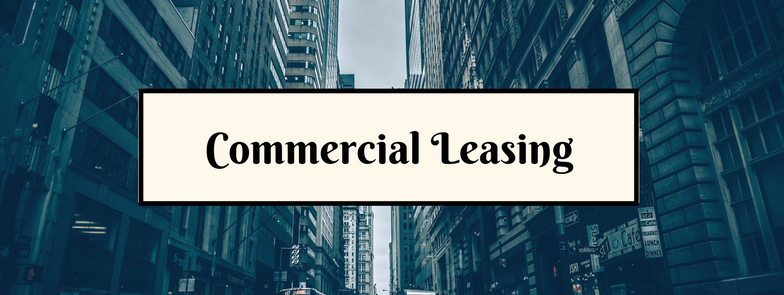Business Insurance: Everything You Need to Know to Protect Your Company
Running a business comes with many responsibilities, one of the most crucial being ensuring your business is adequately protected. Business insurance plays a vital role in safeguarding your assets, employees, and operations. Whether you’re a small business owner or running a larger corporation, having the right coverage can make a significant difference when faced with unexpected challenges.
In this article, we’ll dive deep into what business insurance is, why it’s essential, the types of coverage available, and how to select the right insurance for your business needs.
What is Business Insurance?
Business insurance is a broad term that refers to various policies designed to protect businesses from financial losses. These policies provide coverage for potential risks, such as property damage, employee injuries, lawsuits, and other unforeseen events that could threaten the financial stability of your business.
Why is Business Insurance Important?
Business insurance is essential because it helps protect your business from the financial impact of unexpected incidents. Whether it’s a fire that destroys your office or a lawsuit filed by a client, having insureguide .net ensures that your company can recover and continue to operate without facing severe financial hardship.
Types of Business Insurance
There are many types of business insurance, each designed to cover different aspects of your business. Some common types include:
General Liability Insurance
This is one of the most common types of business insurance, and it covers general risks such as bodily injury, property damage, and advertising mistakes. If a client or visitor gets injured at your business location or if you’re responsible for damaging someone else’s property, general liability insurance can help cover the cost of lawsuits or medical bills.
Professional Liability Insurance
Also known as errors and omissions (E&O) insurance, professional liability insurance protects your business against claims of negligence, mistakes, or failure to deliver services as promised. This is particularly important for businesses that offer professional services, like consulting or legal advice.
Property Insurance
Property insurance helps protect your business assets, including your building, equipment, and inventory, from risks such as fire, theft, or vandalism. If your business relies on physical property, this insurance is a must-have to prevent costly replacements or repairs.
Workers’ Compensation Insurance
Workers’ compensation is a type of insurance that provides benefits to employees who get injured or sick while performing job-related duties. It helps cover medical expenses and lost wages, and in some cases, disability benefits. This is typically required by law for businesses with employees.
Business Interruption Insurance
Business interruption insurance helps replace lost income if your business operations are disrupted due to a covered event, such as a natural disaster or a fire. It covers costs like rent, payroll, and utilities while your business is temporarily shut down.
Cyber Liability Insurance
In today’s digital age, cyber liability insurance is becoming increasingly important. This type of insurance protects businesses against losses caused by cyberattacks, data breaches, or hacking. It can help cover the cost of recovering lost data and notify affected individuals in case of a breach.
Why Do Businesses Need Insurance?
Businesses face many risks, and insurance acts as a safety net to help mitigate these risks. Here’s why business insurance is essential:
Protecting Assets and Property
Your business likely relies on physical property, equipment, or inventory to operate. Insurance helps ensure that these assets are protected from damage, theft, or loss, allowing you to recover quickly and keep your business running.
Protecting Employees and Clients
Employees are a business’s most valuable asset, and protecting them is critical. Workers’ compensation insurance ensures employees are compensated if they are injured on the job. Similarly, liability insurance protects clients from accidents or issues related to your services.
Managing Risks and Liabilities
Running a business involves navigating various risks and liabilities, including lawsuits, accidents, and natural disasters. Insurance helps manage these risks, reducing the financial burden on your business if things go wrong.
Factors to Consider When Choosing Business Insurance
Choosing the right business insurance is not a one-size-fits-all decision. Several factors will influence your needs:
Size and Type of Business
The size of your business, along with the industry you operate in, will determine the types of insurance you need. A small consulting firm might need only general liability and professional liability insurance, while a construction company will require more extensive coverage, including workers’ compensation and property insurance.
Industry-Specific Risks
Certain industries have higher risks and specialized needs. For instance, a tech startup may prioritize cyber liability insurance, while a restaurant might focus on property and liability coverage due to potential hazards like fire or foodborne illness.
Budget and Coverage Needs
Your business’s budget is also an important consideration. While you want adequate coverage, you’ll need to balance cost with the protection your business requires. Working with an insurance broker can help you find affordable options.
How to Choose the Right Business Insurance
To select the right business insurance for your company:
Assess Your Business Risks
Evaluate the risks your business faces. Consider the type of work you do, the number of employees you have, and any specific hazards associated with your industry. This will help guide the type of insurance coverage you need.
Understand Policy Details
Insurance policies can be complex, so it’s crucial to read the fine print. Understand what is covered and what isn’t, and be aware of exclusions, limitations, and deductibles.
Work with an Insurance Broker
An insurance broker can help you navigate the various options available and recommend policies tailored to your business’s unique needs.
Cost of Business Insurance
The cost of business insurance depends on several factors:
Factors that Affect Premiums
- Type of coverage
- Size of the business
- Claims history
- Location
- Industry-specific risks
Average Cost of Common Business Insurance Policies
On average, a small business can expect to pay around $500 to $1,500 per year for general liability insurance, while more specialized coverage like professional liability or workers’ compensation may cost more.
Tips for Reducing Insurance Costs
- Bundle multiple policies with one insurer
- Increase deductibles to lower premiums
- Maintain a good claims history
- Implement safety measures to reduce risk
Common Mistakes in Business Insurance
Avoid these common mistakes:
Underestimating Coverage Needs
Choosing minimal coverage to save on costs can leave your business exposed to major risks. It’s better to have more coverage than not enough.
Failing to Update Your Policy
As your business grows or changes, make sure to update your policy. This includes adjusting coverage for new assets, employees, or operations.
Choosing the Cheapest Option
While cost is important, choosing the cheapest option might leave you underinsured. Make sure your policy offers the protection your business needs.
The Role of an Insurance Broker in Business Insurance
An insurance broker acts as an intermediary between your business and the insurer. They have access to multiple insurance products and can help you find the best policy for your needs.
How Insurance Brokers Can Help
Insurance brokers can save you time and effort by shopping around for you, comparing policies, and negotiating better rates.
Benefits of Working with a Broker
- Expert advice on coverage options
- Ability to customize policies
- Access to a wide range of insurers and products
How Business Insurance Protects Your Business
Real-life examples show how insurance can protect your business:
- Example 1: A small business owner who faces a lawsuit from a customer’s injury on-site can rely on general liability insurance to cover legal fees.
- Example 2: If a fire damages a factory, property insurance can cover repair costs, ensuring minimal downtime.
Understanding Insurance Terms for Businesses
Understanding insurance jargon can be daunting, but learning basic terms such as premiums, deductibles, and exclusions is essential. Make sure you understand your policy before signing anything.
The Renewal Process for Business Insurance
Just like personal insurance, business insurance policies require renewal. The process is usually annual, but be sure to review your policy at least a month before it expires. Look for changes in premiums, coverage, and terms.
Business Insurance for Different Types of Businesses
The insurance needs of small businesses, large corporations, and online businesses vary greatly. Tailor your insurance plan based on the size and scope of your business.
The Future of Business Insurance
As technology advances, business insurance is becoming more tailored to specific industries and risks. With the rise of cybersecurity threats and new risks, businesses will need to stay ahead of the curve and adapt their insurance coverage accordingly.







